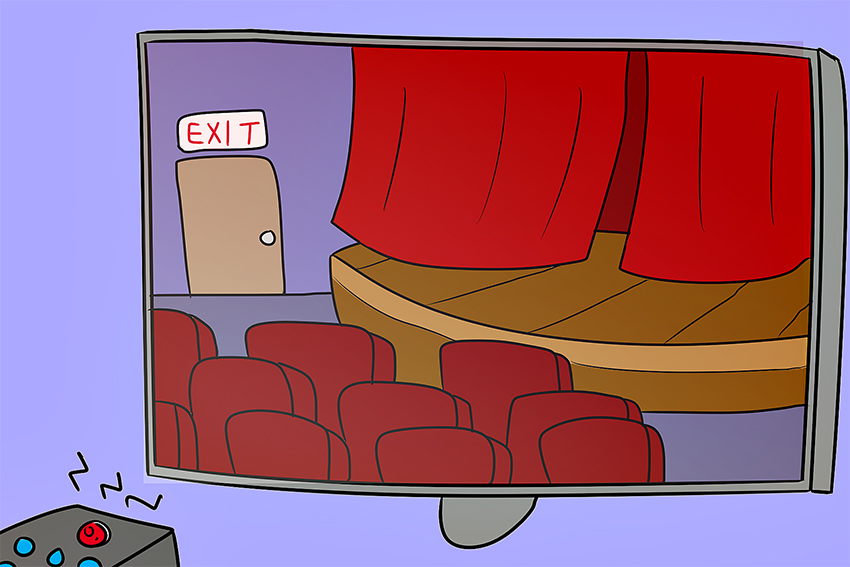Spoiler alert — the movie industry is in danger.
Movie exhibition has served as an outlet for filmmakers to screen their work to the general public. Though its 100-year history has been problematic, a newly-proposed service called The Screening Room is generating some of the greatest uncertainty movie exhibition has faced.
Backed by Napster co-founder Sean Parker, The Screening Room will enable moviegoers to view new theatrical releases from their homes. At a rate of $50 per film, on top of $150 for a “piracy-proof” set-top box, viewers will have 48-hour access to films released by participating distributors.
To secure exhibitors’ support, the company has offered distributors up to $20 of the $50 fee. They will also provide paid customers with two tickets to see the film in cinemas to alleviate concerns over a lack of profit from
concession sales.
However, concerns over the consequences of releasing a day-and-date movie platform persist. Writer and director Barbara Twist, who has spoken out against The Screening Room, said the home-centered service will inevitably lead to industry-wide economic decline.
“People who work in film understand that these projects spend years in the making, take extraordinary amounts of funding, and that the whole business and ecosystem of filmmaking, which includes exhibitors, consists of millions of jobs and billions of dollars in revenue,” Twist said. “Something like The Screening Room is going to disrupt this economic ecosystem, which, after the erosion of DVD and Blu-ray sales in the mid-2000s, is already
in flux.”
Twist said releasing new films in private environments makes them susceptible to even greater infringement, despite assertions that the technology is piracy-proof. This increase in piracy would force producers to become more conservative in their investments, hindering the progress made by independent filmmakers and distributors.
“The extreme piracy ushered in by The Screening Room will inevitably continue to devalue creativity,” Twist said. “When there’s less money to be invested in films, [producers] will only continue to invest in sure bets, so we will continue to get sequels, prequels and everything based on known intellectual property. Where is the art in that?”
Other moviegoers, including filmmakers J.J. Abrams and Steven Spielberg, have praised The Screening Room for prioritizing accessibility and convenience. Radio-television-film senior Jason Garza remains optimistic about Parker’s platform, suggesting that its release will benefit home-bound moviegoers.
“I grew up watching movies in the theater, but I also grew up watching them at home,” Garza said. “I get that watching a movie at home is not what the filmmaker intended, but, at the very least, you’re experiencing it. People have to grow up and realize that you can’t maintain traditional beliefs about the moviegoing experience.”
Even so, opponents of The Screening Room, including filmmakers Xavier Dolan and Christopher Nolan, remain critical of this emphasis on convenience and profitability. Radio-television-film freshman Elias Hinojosa argues that the service, despite being convenient, undermines one of the core elements of the moviegoing experience — its impact, particularly in a shared environment.
“It is the shared nature of the moviegoing experience that makes it so magical,” Hinojosa said. “For a certain amount of time, the people in those seats have an unspoken connection unlike any other. They are brought together by reacting to the same things… [and] when you isolate an audience member, it takes away that magic. The ultimate goal [should be] to make magic — not money.”





















